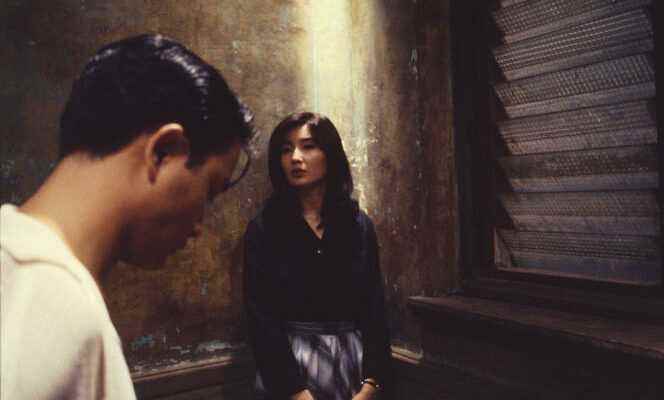Lost in the incessant re-editing of old films or the preparation of new ones that will never be made, bogged down in lengthy shoots, Wong Kar-wai (In the Mood for Love, Chungking Express) is more than an eternally dissatisfied person: a haunted creator, a mad “talker” who has never finished, sick of having to return his copy and of whom one might think that the most beautiful films are those he does not ever realized, those that will remain floating around in his head forever.
Without news of the Hong Kong filmmaker for almost ten years and The Grandmaster in 2013 (apart from the start of work on its series project Blossoms Shanghai), amateurs and neophytes will be able to refer to the origins of this essential work, on its first two and magnificent feature films, As Tears Go By (1988) and Our wild years (1990), which the stream of reissues brings back to the screens in restored versions.
Melancholy little brother of the Hong Kong “new wave” of the 1980s, promised to international consecration since HappyTogether (1997), Wong Kar-wai not only invented a style, plundered shamelessly. He “invented” the 1990s, at least something of their retinal persistence: nostalgic patina, formal flamboyance, inconsolable relationship to time, elastic use of memory and end-of-the-century romanticism.
Before moving on to directing, Wong Kar-wai first and long made his hand as a scriptwriter in the purgatory of pure and hard industry, first in television, where he worked on soap operas, then in the writing pools of genre cinema, on dozens of action, horror or kung-fu films. He writes in particular Final Victory (1987) for his eldest and mentor Patrick Tam, a formidable author of urban thrillers who will set his foot in the stirrup.
gangster story
His first feature film, As Tears Go Byis a commissioned film, a story of gangsters, cut on the same canvas as MeanStreets (1973), by Martin Scorsese, as he would never shoot again thereafter. Wah (Andy Lau), a young gangster from the Kowloon district, versed in debt collection, drags Fly (Jacky Cheung) as a henchman, buddy and uncontrollable hothead who does nothing but his own, but to whom he is tenderly attached. However, Wah sees his heart leaning on the other side, with his cousin Ngor (Maggie Cheung), whom he follows off to Lantau Island, where she lives. But each time, he is irresistibly called back to the peninsula to save the day for Fly, who borrows at all costs without repaying, provokes the neighboring gangs and compromises himself definitively.
You have 49.76% of this article left to read. The following is for subscribers only.
